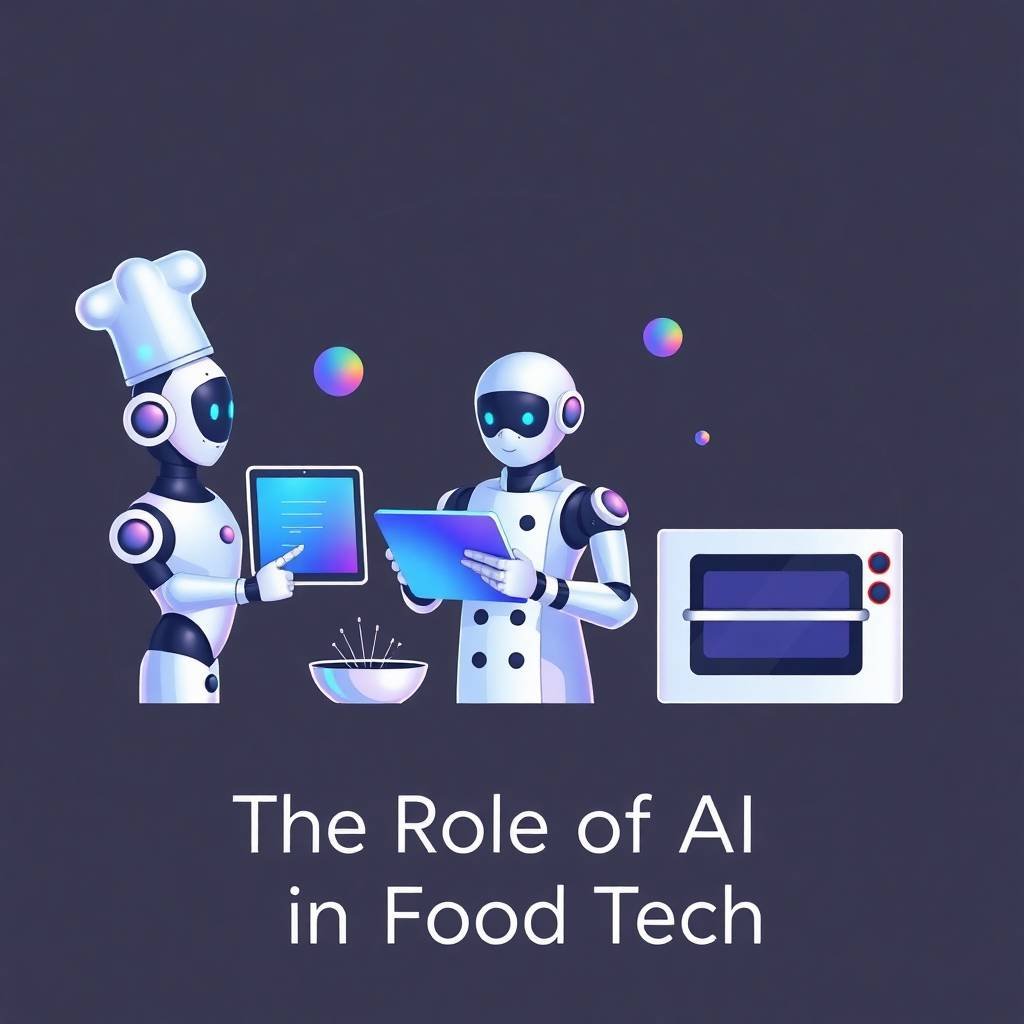The food industry is witnessing a technological transformation, with Artificial Intelligence (AI) playing a pivotal role. From optimizing production to enhancing customer experiences, AI is reshaping every aspect of food tech. As we move into this new era, it’s important to understand how AI is driving these changes and what it means for the future of food technology.
How AI is Revolutionizing Food Production
Precision Agriculture
AI-driven tools, such as drones and sensors, are being utilized to monitor crop health and soil conditions, leading to more efficient farming practices and higher yields. Farmers can make informed decisions based on real-time data, optimizing resource use and minimizing environmental impact.
Automated Food Processing
AI-powered machines streamline food processing by improving quality control and reducing waste, ensuring products meet high standards while cutting costs. Automation in production lines increases efficiency and consistency, ultimately benefiting both producers and consumers.
Enhancing Customer Experience in Food Services
Personalized Dining Experiences
With AI, restaurants can offer personalized menus based on individual dietary preferences and past orders, enhancing customer satisfaction. This personalization helps build customer loyalty and creates a unique dining experience.
Smart Ordering Systems
AI chatbots and voice assistants simplify the ordering process, providing customers with quick and accurate service. These technologies reduce wait times and improve the overall dining experience.
AI in Food Safety and Quality Control
Predictive Analytics for Risk Management
AI algorithms analyze data to predict potential food safety risks, allowing companies to take proactive measures. This helps prevent foodborne illnesses and ensures compliance with safety regulations.
Real-time Monitoring
AI systems enable real-time monitoring of food quality during production and transportation, ensuring compliance with safety standards. This continuous oversight helps maintain product integrity and consumer trust.
Challenges and Ethical Considerations
Data Privacy Concerns
The use of AI in food tech raises questions about data privacy, emphasizing the need for secure data handling practices. Companies must prioritize transparency and consumer privacy to build trust.
Balancing Automation and Employment
While AI can increase efficiency, there is a need to balance automation with job opportunities, ensuring a fair transition for workers. Reskilling and upskilling initiatives can help workers adapt to new roles in an AI-driven industry.
Conclusion: The Future of AI in Food Tech
AI is set to continue revolutionizing the food industry, offering solutions to long-standing challenges and driving innovation. Embracing AI in food tech promises a future of enhanced efficiency, safety, and customer satisfaction. As stakeholders navigate this transformation, addressing ethical considerations and ensuring equitable growth will be key to success.

